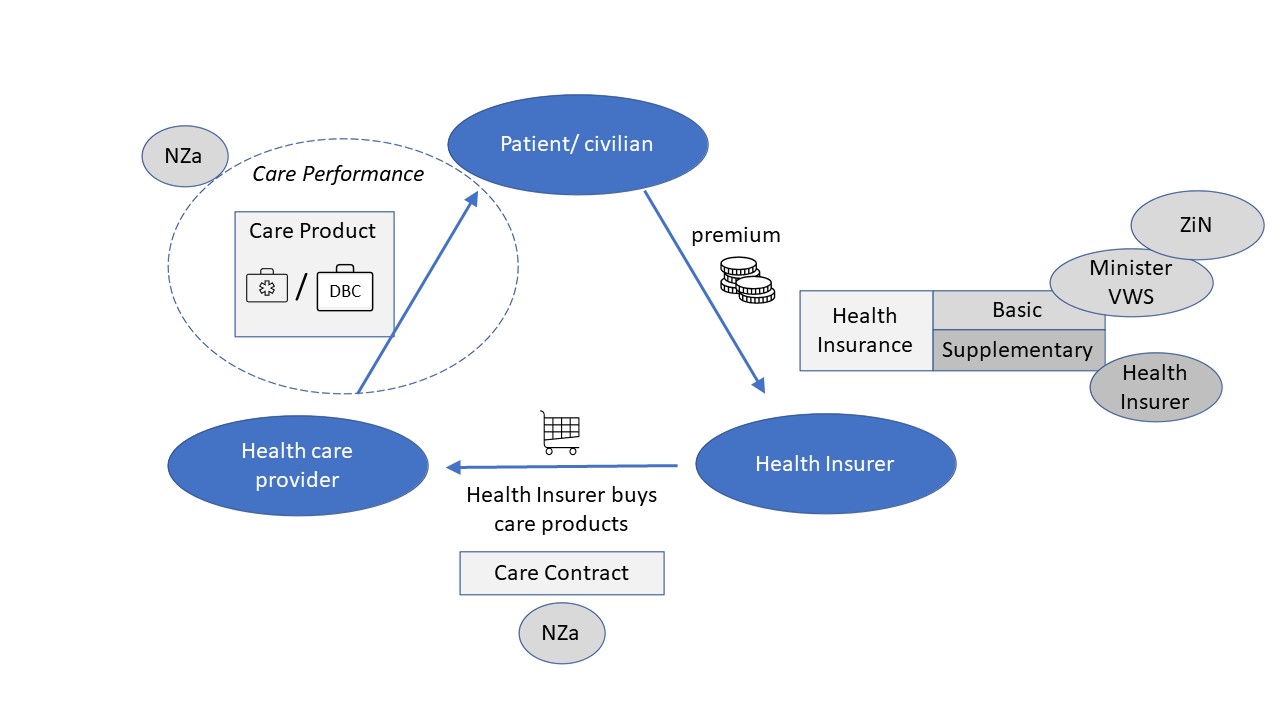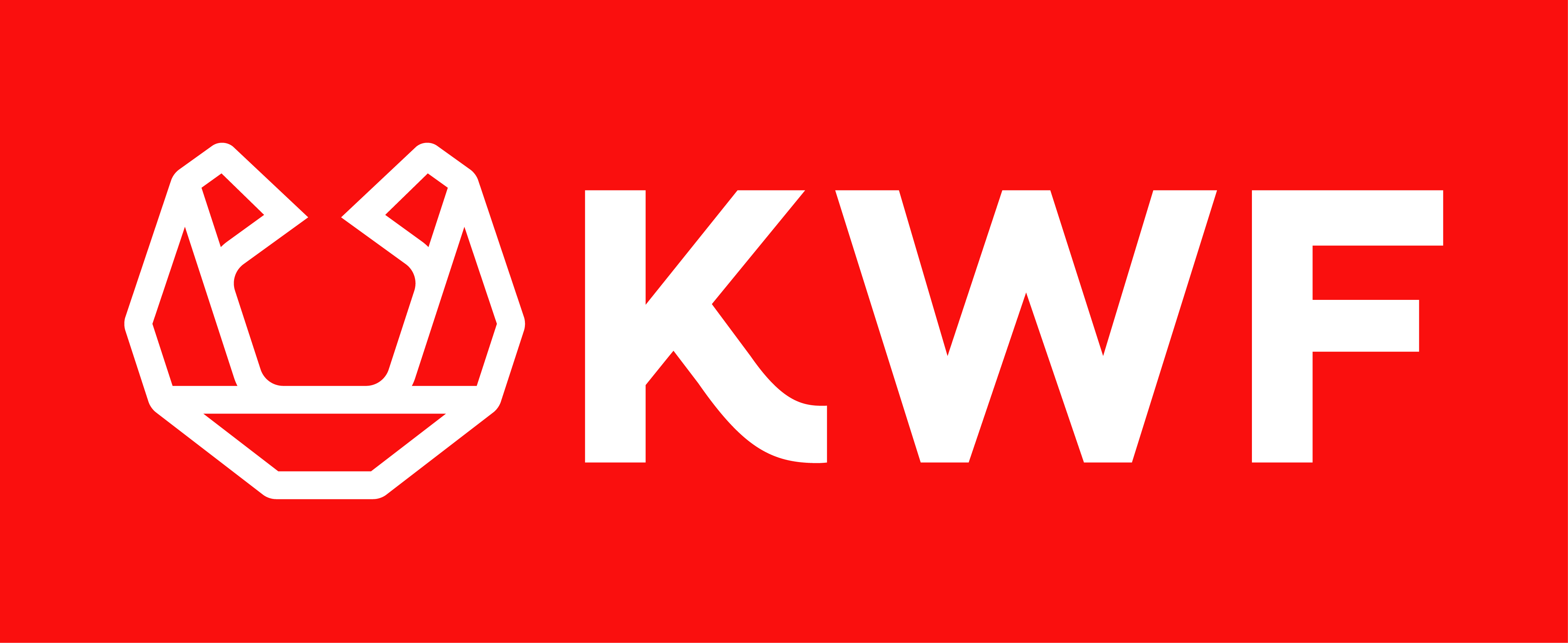The Dutch Health Care costs coverage system
Updated
by Marieke Simonis
-under construction-
The Health Insurance Act (Zvw) is a law that regulates compulsory basic insurance. Everyone who lives or works in the Netherlands is entitled to care from the basic package. The Dutch healthcare system is based on solidarity: rich and poor, young and old, healthy and ill are all entitled to the same, affordable care from the basic package. Everyone contributes to this through premiums and taxes.
As part of the challenge of keeping health care affordable, the set-up of the system is made with the idea that market forces can act on the prices of health care. This becomes evident in for example the DBC system and the role of the NZa, as discussed below.
The basic organization of health care coverage:

Concepts and definitions
Health Insurance
Health insurance consists of two parts: basic and extended. The content of the basic package is determined by law. An insured person can take supplementary insurance for care that is not included in the basic package. A health insurer can offer various supplementary insurance policies. The health insurer determines the content, conditions and reimbursements of its supplementary insurance.
Care product
Care products in this context are medical prestations that are billable to the insurer. One care products is one billable unit. Care products can be categorized into Diagnose-Behandel-Combinatie (DBC) and other care ("overige zorg").
DBCs: If someone ends up in hospital, not every action, such as an injection or X-ray, is charged separately, but different actions are combined into Diagnose-Treatment-Combinations (DBCs). You could see DBCs as a package of all care activities and procedures required to establish the diagnosis and the associated treatment in a defined period. At the end of that period, the hospital prepares the invoice. DBC is the basis for purchasing, declaring and reimbursing medical specialist care.
In addition to DBC care products, the hospital can deliver other care products, that can be declared separately from the DBC. They come in 4 categories:
• Supplemental products; such as expensive medication, or additional IC care
• First-line diagnostics
• Paramedical treatment and research
• Other procedures; such as genetic counseling
Care performance
A performance ("prestatie ") is in this context the delivery of a care product by the health care provider to the patient. The price of a care performance is maximized by the NZa (with some exceptions).
Care contract
Hospitals and health insurers make annual agreements about the price and volume of care products that hospitals provide to patients. The price cannot exceed the maximum prizes as determined by the NZa. The agreements are laid down in a contract, per hospital and per insurer. More and more, hospitals and health insurers choose to make contract agreements for several years (multi-year contract).
Role of the different parties
Health Insurers
- collect the premium for the basic insurance and from this they pay for all care that falls under the basic insurance
- have an obligation to make sure care is available by purchasing care from care providers
- have a role in keeping the premium of the basic insurance as low as possible. That is why health insurers negotiate rates with health care providers
- The Health Insurance Act prescribes which care must be provided, but leaves open by whom and where. This is recorded by the health insurers in the policy conditions.
- determines the content, conditions and reimbursements of its supplementary insurance. Content, and conditions can vary between insurers.
Care provider/ Hospital
- provides care to patients (delivers care products to patients)
- declare the care products delivered to patients to the insurer according to the agreed rates, as described in the care contract.
Zorginstituut Nederland (ZiN)
The Zorginstituut advises the Ministry of Health, Welfare and Sport (VWS) on the content and scope of the basic package, among other responsibilities.
NZa
The price of a care performance is maximized by the NZa (with some exceptions).
